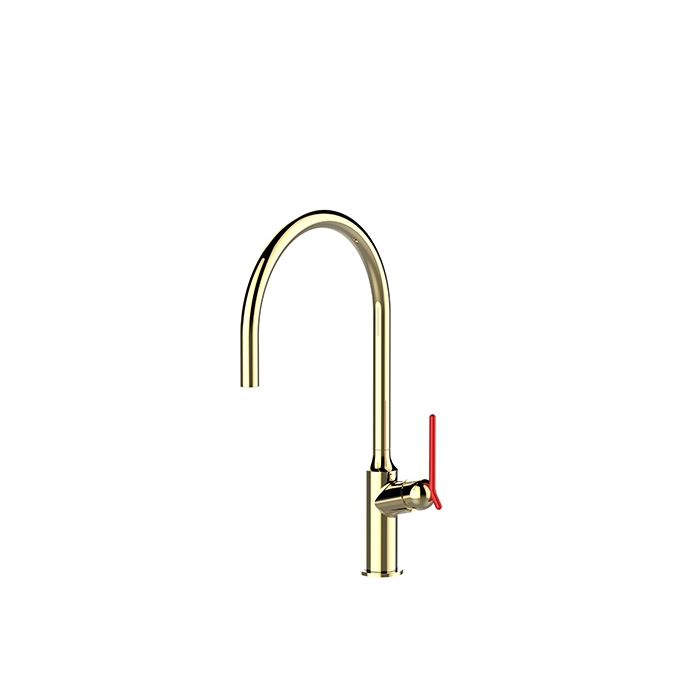Single-handle kitchen faucets play a vital role in promoting water efficiency and sustainable practices at home, contributing to environmental protection and resource management efforts. These faucets incorporate a variety of features and technologies designed to reduce water consumption and minimize environmental impact, while maintaining kitchen convenience and functionality.
One of the key factors that improves the efficiency of a single-handle kitchen faucet is the integration of a low-flow aerator. These aerators regulate water flow by mixing air with it, reducing overall water usage without affecting the user experience. By limiting flow while maintaining adequate water pressure, low-flow aerators can help households conserve water and lower utility bills over time.

Another important feature that promotes sustainability is the implementation of leak detection technology. Modern single-handle faucets are equipped with sensors and mechanisms that detect and alert users to potential leaks or drips, preventing water waste and costly water damage in the kitchen. Early detection of leaks allows for timely repairs, minimizing water loss and protecting valuable resources.
Additionally, choosing environmentally friendly materials in the construction of single-handle kitchen faucets is an important consideration for sustainability-conscious consumers. Manufacturers are increasingly choosing durable, recyclable materials such as stainless steel, brass and lead-free alloys, which not only increase the longevity and performance of faucets but also reduce the environmental footprint associated with their production and disposal.
Consumer awareness and preference for eco-friendly faucets has also contributed to the growing demand for sustainable kitchen equipment. With an increasing emphasis on environmental responsibility and conservation, homeowners are actively seeking products that align with their values and contribute to a green lifestyle. So manufacturers are responding by offering a variety of eco-friendly options, including WaterSense-certified faucets and models with eco-friendly certifications.
The wider impact of sustainable design practices in the kitchen goes beyond water conservation to include energy efficiency, waste reduction and overall environmental stewardship. By adopting sustainable solutions like single-handle kitchen faucets with efficient water management, households can contribute to wider sustainability goals while enjoying the benefits of lower utility costs and reduced environmental impact.
In summary, single-handle kitchen faucets with water-saving features and eco-friendly materials are an integral part of sustainable kitchen design. By prioritizing efficiency and sustainability when choosing taps, households can play an active role in conserving water, reducing their ecological footprint and contributing to a more sustainable future for generations to come.